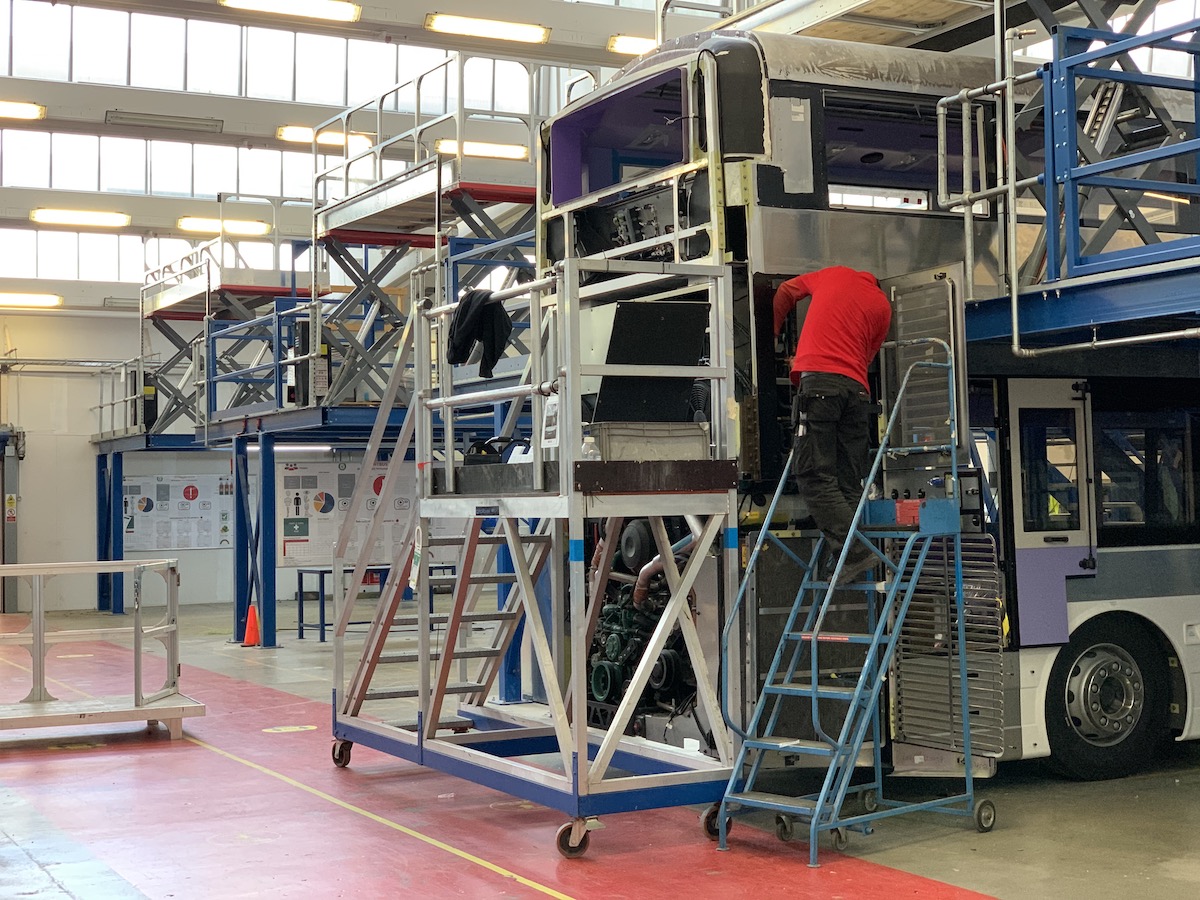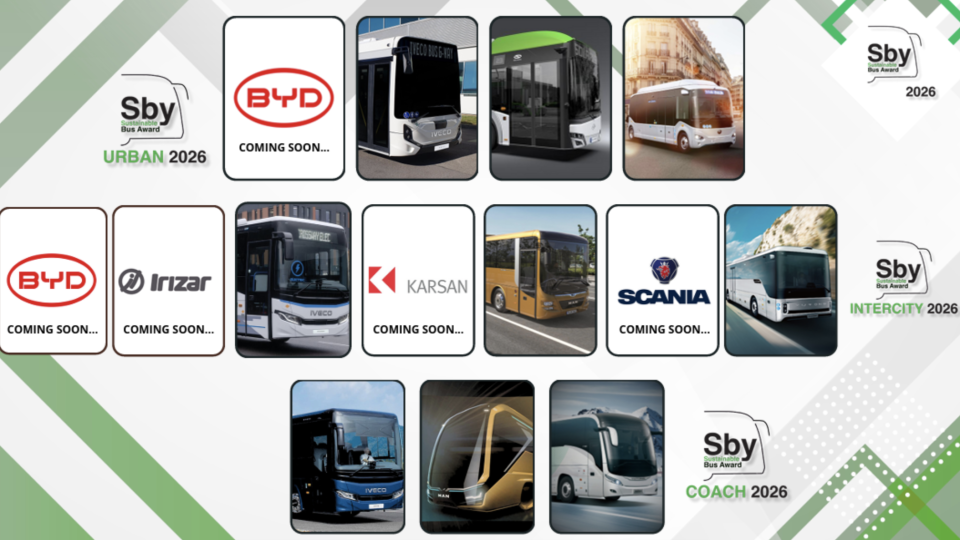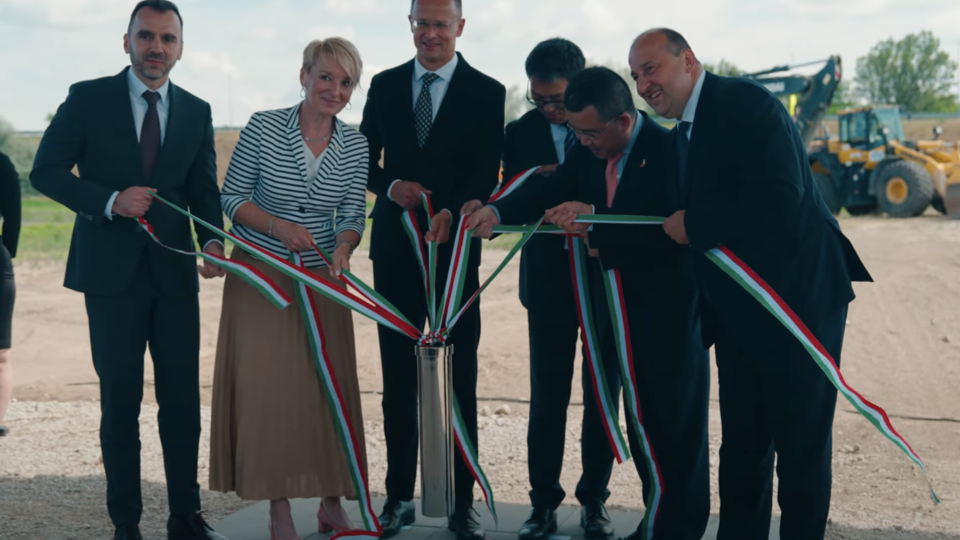Jo Bamford: «It’s not the bus. The issue is on infrastructure». Here H2 technology has cards to play. Our interview
«It’s not the bus, which is a mean to an end. The issue is how to power the bus, how to organize the infrastructures around the depots. This is the big planning exercise». Take Jo Bamford words for it. He is chairman and owner of Wrightbus, the North Irish bus manufacturer on the verge of bankruptcy […]

«It’s not the bus, which is a mean to an end. The issue is how to power the bus, how to organize the infrastructures around the depots. This is the big planning exercise».
Take Jo Bamford words for it. He is chairman and owner of Wrightbus, the North Irish bus manufacturer on the verge of bankruptcy in late 2019 and then rescued by JCB heir. Jo Bamford’s grandfather Joseph Cyril founded the diggers’ giant in 1945 and the family still owns the company. Jo Bamford entered the bus industry one year after the foundation of his green hydrogen company Ryze Hydrogen. Today Wrightbus is the first fuel cell double-decker bus manufacturer, with a recent delivery performed in London for 20 vehicles. A fleet was put in operation in Aberdeen in early 2021. One year ago he said to have plans for the rollout of no less than 3,000 hydrogen buses in the UK by 2024, all built in Ballymena.
if you want to get volumes up, you need to do what China did on batteries, which was a brilliant job. They used government subsidies to drive up volumes, and this therefore drove down costs, having this part of the economy established in China. In the UK, and Europe as well, hydrogen is a small market so far and nobody is driving this market as of today. So, there is room to do that
Jo Bamford, Wrightbus chairman
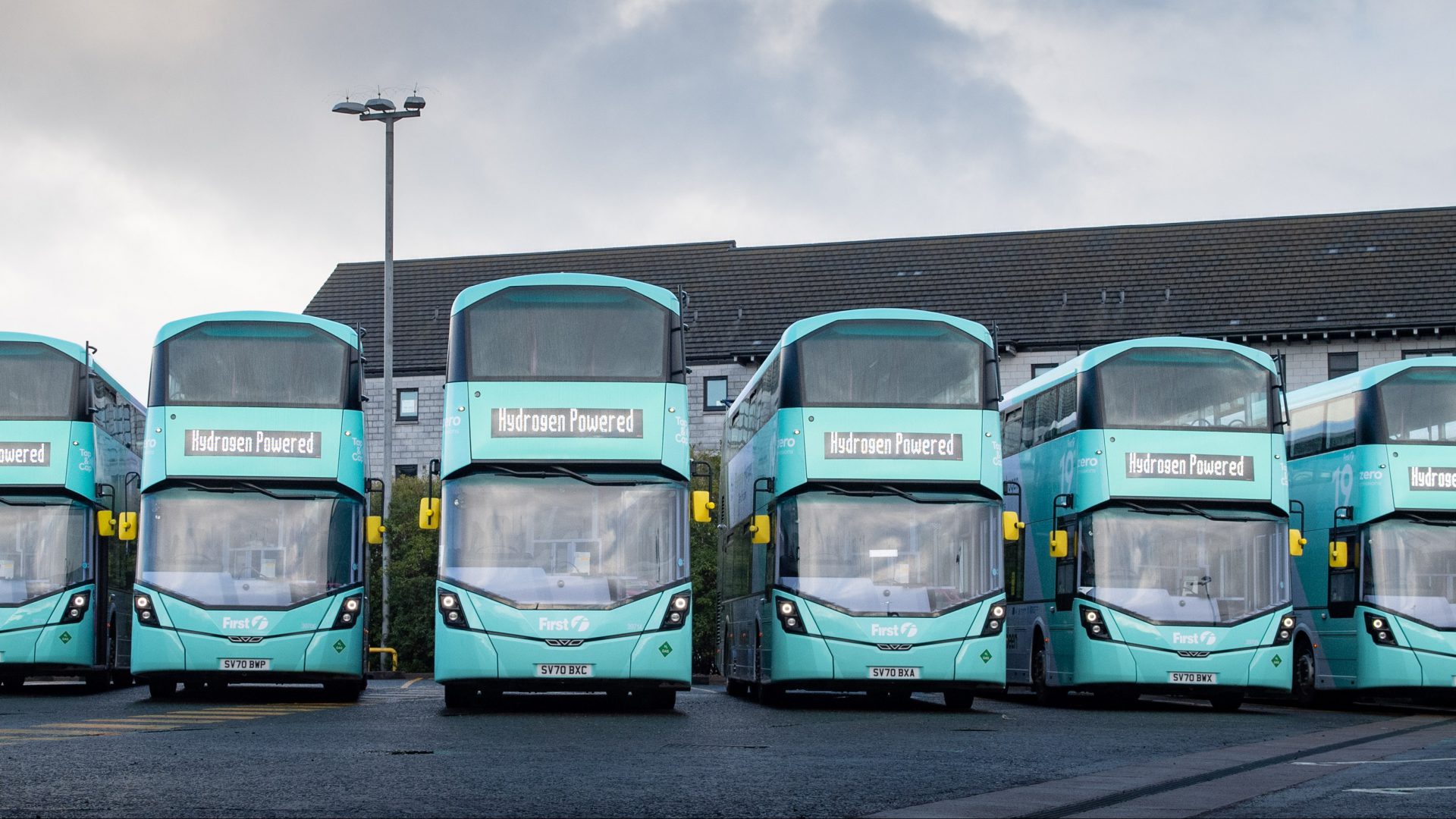
Jo Bamford, Wrightbus, hydrogen technology
Jo Bamford, may you provide us a picture of Wrightbus today?
«Wrightbus today is a transitioning business. We took over the company from bankruptcy almost two years ago and I’m pleased to say we made profit during the first year. It’s a business transitioning from diesel to zero emission buses very rapidly. We are witnessing a lot of changes going on not only in the bus manufacturing world but also in that of bus operators, who are changing the way they operate buses. And we are excited about future opportunities».
UK government has issued a £54m package, Wrightbus was awarded 11 million pounds. In 2020 you asked for, if I’m not wrong, 500 million pounds. How is this money to be used?
«We didn’t ask for 500 million pounds, we said that we would need 500 million pounds in order to get enough volume to make hydrogen buses cheaper. If we want to establish hydrogen in the British economy, then buses are the first place to do this. The money we have been awarded will be used to develop zero emission buses, including fuel cell buses, that have pros and cons. Battery buses today make half mileage compared to diesel buses, they are fine for city center routes, on the other hand it is cheap to make them running. If you look at intercity and country routes, with battery-powered vehicles you have problems. Hydrogen buses can cover the same distances as a diesel bus. Anyhow, we are keeping both battery-electric and hydrogen buses in our portfolio».
Will the £54m package be enough to kickoff the realization of a hydrogen ecosystem in the UK?
«Any money is helpful, but if you want to get volumes up, you need to do what China did on batteries, which was a brilliant job. They used government subsidies to drive up volumes, and this therefore drove down costs, having this part of the economy established in China. In the UK, and Europe as well, hydrogen is a small market so far and nobody is driving this market as of today. So, there is room to do that».
Infrastructure is key
Which is your opinion on the Bus Strategy ‘Bus back better’ launched by the UK government? How do you expect this will change the public transport landscape in the UK?
«This 3bn pounds are mainly for bus operators. Anyhow, if you want to go zero emission, the big issue is not the bus but the infrastructure. From a government point of view, it is important to think at the bus together with infrastructure. Our customers are striving on how to finance more expensive buses, how to talk about residual value, what to do with batteries. These are very exciting times, there are a lot of opportunities, but the world is telling us to move quickly. So how do you make decisions around technology when you are not sure about how technology will evolve in 5-10 years down the line?»
if I can replicate human behaviour, the most difficult thing to change is the mindset of people, and people are used to operate buses in a certain manner, their business are set around filling time, cleaning time… hydrogen allow people to replicate the same manner than operating diesel buses
Jo Bamford, Wrightbus chairman
There is a lot of talk about the opportunity of introducing new business models in order to allow the purchase of electric vehicles. Are there any kind of financing models you may expect to be put in place?
«As you have new ways of doing things, you have new ways of financing them. But, as already mentioned, it can’t be just about the bus, it must be bus plus infrastructure. An example: if you want to decarbonize the whole fleet in ten years, there is no point in starting from the installation of ten charging stations. You need to convert the whole depot and the fleet based at that depot, then move to another depot. It’s a different way of thinking».
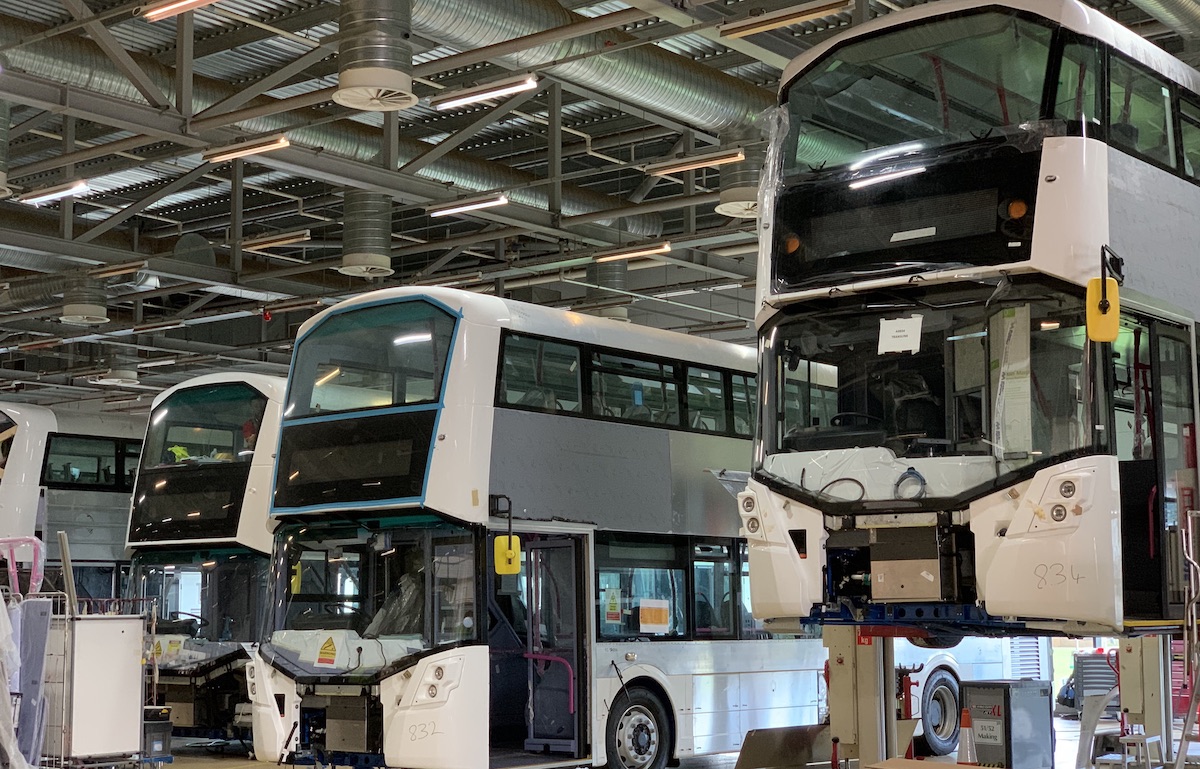
Today fuel cell buses are only deployed in the framework of funded projects. The purchase cost is an important barrier. When do you think hydrogen buses will become commercially viable?
«I can’t talk about Europe today, I can tell you that in the UK today our double decker hydrogen bus cost the same as a battery-electric double decker bus, which is roughly twice as expensive than a diesel DD bus. Cost of hydrogen is going down and catching up with that of batteries».
A ‘target figure’ in the hydrogen bus industry is 650,000 euros of purchase cost for the bus…
«It’s already less than that in the UK».
Don’t you share the opinion that improvements of battery technology will enable daily service range to be achieved in a few years’ time?
«Everything can get better. However, if I can replicate human behaviour, the most difficult thing to change is the mindset of people, and people are used to operate buses in a certain manner, their business are set around filling time, cleaning time… hydrogen allow people to replicate the same manner than operating diesel buses».
Jo Bamford: hydrogen and UK – European industry
It’s a common feeling that hydrogen buses may represent a good solution when economies of scale is involved also on the side of the operators, i.e. big public transport companies. Do you think also small PTOs are going to go for hydrogen instead of battery buses?
«I’m happy to sell both battery and hydrogen buses, depending on customers’ needs. We’ll launch our battery-electric double-decker bus in the fourth quarter of this year. At the end of the day I think hydrogen is good because it’s a great starting point for our industry. We should consider that China has 73% market share in the battery market. Europe is going to spend half a trillion on hydrogen in ten years, across European countries. And buses are the best place to start with».
I don’t see any diesel bus in the UK being sold in four years, or very few
Jo Bamford, Wrightbus chairman
Are you targeting any market outside the UK?
«At the moment we don’t have hydrogen buses for Europe, we’ll probably have them next years. There’s a market to be done in the UK, now. We should first get our business model right in our market, and then go for other markets. Don’t forget we came out from bankruptcy 18 months ago».
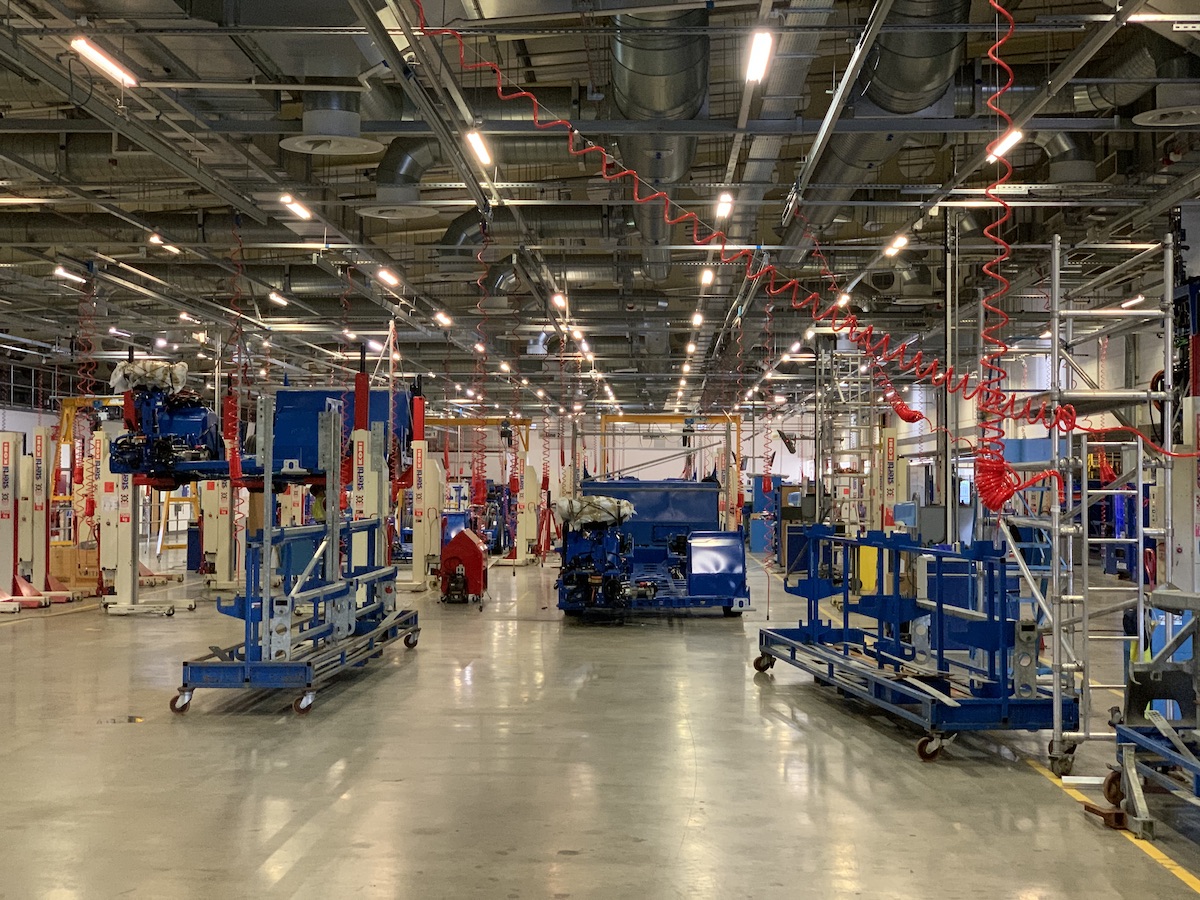
It has been observed, regarding energy efficiency of hydrogen production, that «with the same amount of electricity that you use to produce hydrogen to run one hydrogen bus, you can run two battery electric buses». Which would be your answer to such consideration?
«When you are filling up your car, is it important for you how efficient the refinery is? We care about the cost and the mileage. Energy efficiency issue has been created by battery guys, such as Elon Musk. But if you go deeper into the topic of energy efficiency, you should think about the fact that in Glasgow they are building a new bus depot for 125 e-buses. They need the same amount of power as that needed by 10,000 houses. I can turn waste stream, plastic waste into hydrogen. I can take hydrogen from a nuclear power station, I can make hydrogen out of wind farms when there is too much wind. All these ways are efficient. If you want to electrify with battery-electric buses all transport in Britain, you need to dig up the grid and triple it within the next 15 years, with today’s charging technology. And when technology will evolve, maybe in five years time charging infrastructure should be replaced».
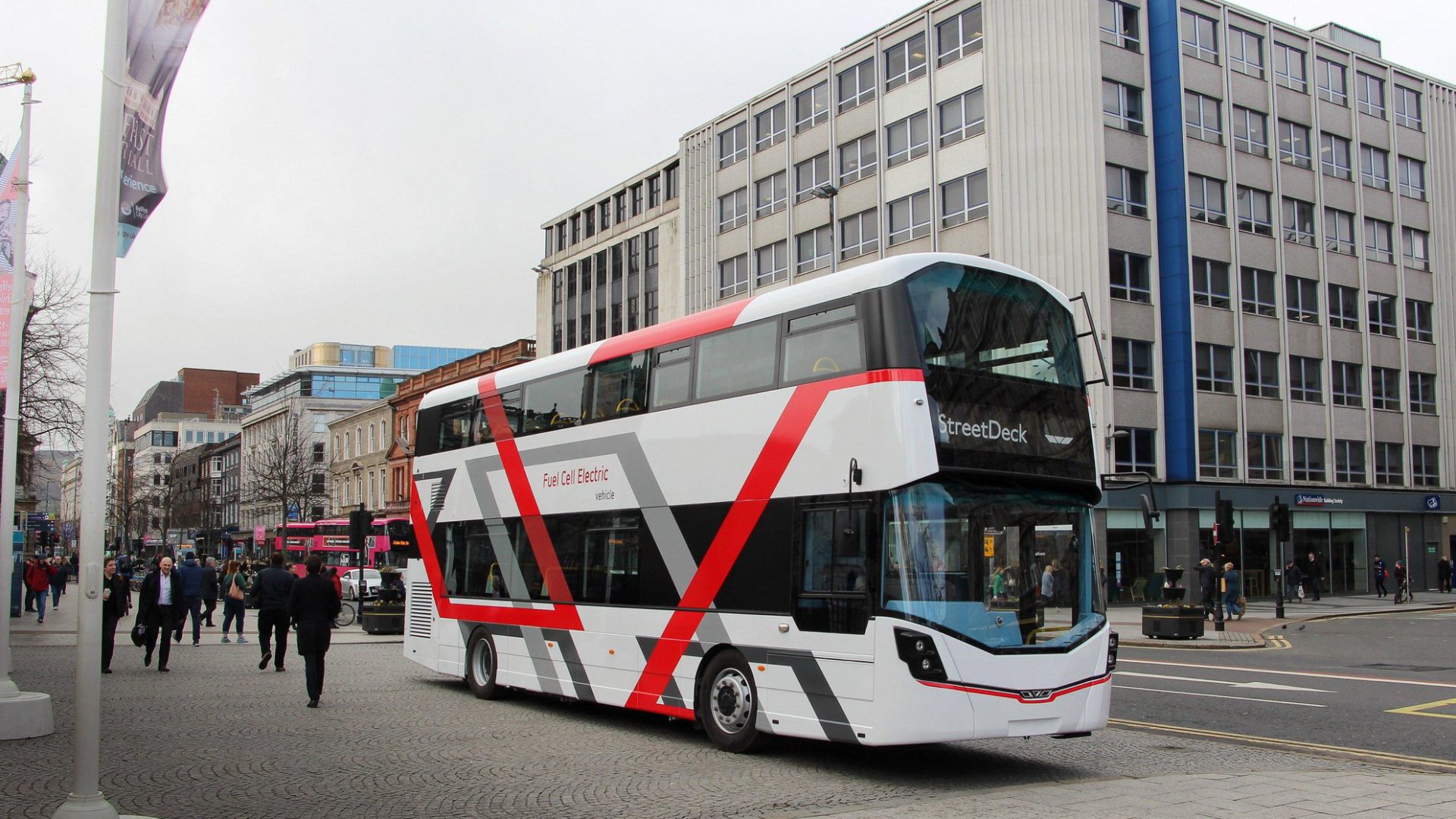
Energy efficiency technology may be an argument when it comes to the source of energy used for the production of hydrogen, that today is mainly from fossil fuels. Energy from renewables is not endless today…
«The reality is this: around 2025 we’ll have blue hydrogen. It provides for the reforming of natural gas into hydrogen, with carbon capture. It’ll allow carbon-free hydrogen at a mass scale. Today we make green hydrogen, we connect renewables with electrolysis, and this is part of the solution. But there are also ways of producing hydrogen from waste plastics.
As a matter of fact, we are going to have both solutions: battery-electric and hydrogen vehicles. The efficiency argument is not going to help. For instance I can’t see how coaches may ever run on batteries. And this applies also to excavators: the battery would be the same size as the machine, and the machine is in the middle of a field, so it can’t be charged up. Batteries work perfectly on cars, in that field there is momentum to do it. But I don’t know how they can work on other applications. Capacity constraint is going to become the grid. If you want to convert all buses in London in the next 10 years, you need a new 500 MW power station just for the buses».
Hydrogen-powered combustion engine?
JCB has recently announced the launch of a hydrogen motor for heavy machinery where hydrogen is burnt such as diesel, but without polluting emissions. Is this novelty going to have repercussions on Wrightbus business in the public transport sector?
«Combustion engines running on hydrogen are interesting, although not a new thing. They are zero emission, although they are noisy, while fuel cells aren’t. This is a crystal ball question. At the moment we are looking at lots of different things: batteries, fuel cells, and we have relations with combustion engines. I suppose the way to deal with it is this: over one century ago we had different modes of motions. We had battery cars, for instance. Then the combustion engine came. Over the next 10 to 15 years I think the whole industry will turn around one or two solutions, but at the moment there are many different things to look at. And this is why we are living such an exciting time».
At the moment we don’t have hydrogen buses for Europe, we’ll probably have them next years. There’s a market to be done in the UK, now. We should first get our business model right in our market, and then go for other markets. Don’t forget we came out from bankruptcy 18 months ago
Jo Bamford, Wrightbus chairman
According to studies, «the UK’s hydrogen fuel cell city bus market is projected to top 425 units delivered annually by 2030, while the equivalent figure for intercity buses is 1,278». Do you agree with such a forecast?
«What I know is that there is going to be a market for zero emission buses. I don’t see any diesel bus in the UK being sold in four years, or very few».
How do you see the public transport operators landscape at the test of the transition? Do you feel they are getting prepared for this or some significant barriers are in place?
«I think bus operators are incredibly bold, not just in the UK but across Europe. Buses are highly visible in every city. And all bus operators know they have to go for zero emissions, and they come out with plans to do it, in a very short space of time. I think this is incredibly bold and incredibly brave».
In Wrightbus and Ryze Hydrogen you are keen to provide a turnkey solution regarding buses and infrastructures or you work with partners?
«We do hydrogen, we do planning and we can bring in some partners we work with in terms of charging stations and what economic models work best. One of the more difficult things is what to do with batteries. What to do at the end of their life? We have to find a solution».
